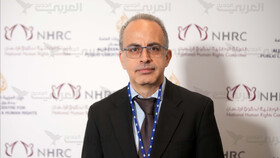Technology at the Service of Israel for Genocide in Gaza
Association for Defending Victims of Terrorism – Israel presents itself as a hub of technological and pharmaceutical innovation, while United Nations reports show that the huge profits of its leading companies, through taxes and military cooperation, flow directly into the budget for war crimes and genocide in the occupied Palestinian territories.

According to Defa Press, today the Zionist regime presents itself in the world as one of the advanced countries in various fields. However, these advances are based on the systematic suppression of Palestinians. This regime hosts companies whose market value amounts to hundreds of billions of dollars, while its apartheid and criminal policies have kept millions of Palestinians suffering.
Of course, behind these economic achievements, there is a revenue stream that helps strengthen the Israeli economy, and international critics directly link it to war crimes, occupation, and genocide. UN reports, such as the July 2025 report by Francesca Albanese of renowned international lawyers, emphasize that these revenues are used to support actions described as gross violations of human rights, where companies have shifted from an economy of employment to an economy of genocide.
Israel’s economy, with a GDP of over $500 billion in 2025, is heavily dependent on the export of technology and military products, exports that are often based on testing technologies on Palestinian civilians. Companies developed with the support of the occupying regime and foreign investment make up a large part of this economy.
According to economic reports, these companies pay billions of dollars in taxes to the Israeli government every year, part of which is allocated to the military budget of over $20 billion per year, a budget that is spent on the bombing of Gaza and the repression of the Palestinian people and the regime’s crimes in the region. Many of these companies work directly with the Israeli armed forces and test their technologies in real-world conditions, on defenseless people. The Boycott, Divestment and Sanctions (BDS) movement accuses these companies of exploiting the occupation of Palestinian territories, where the revenues help to strengthen apartheid structures and criminal acts. United Nations reports in 2025, including an update of the database of companies involved in illegal settlements with 158 companies, link this financial flow to actions classified as crimes against humanity. One of the most prominent companies mentioned is Teva Pharmaceutical Industries. The pharmaceutical giant, with annual revenues of more than $15 billion by 2024, is the world’s largest producer of genetic drugs. It is headquartered in Tel Aviv and has more than 40,000 employees. By distributing its products in more than 60 countries, the company contributes revenues to the Israeli economy through taxes and local investments, but reports indicate that some of its factories are located in the occupied territories, which is interpreted as direct support for the policies of occupation and repression. Teva ranks high in global innovation rankings, but critics claim that part of the profits flow into funds used in military operations against civilians and war crimes, where the Israeli regime misuses the drugs to control the occupied population.
Check Point Software Technologies, a cybersecurity company with a value of more than $20 billion, is another such company that provides security software to large global companies.
The company was founded by veterans of the occupation regime’s army and returns part of its revenues to the defense sector through cooperation with the government. The United Nations reports that indicate that the company’s technologies are used to monitor and control the Palestinian population describe it as a tool for human rights violations and facilitating genocide; although the company in question focuses on global cybersecurity, it is actually part of a cycle that helps the Israeli regime’s crimes.
Mobileye, a subsidiary of Intel, can be mentioned as another such company, which is the market leader in autonomous driving technologies with revenues of more than $2 billion in 2024 to provide artificial intelligence systems for automakers. Although MobileEye, inspired by the intelligence units of the occupying regime’s army, has created thousands of jobs in Israel, Amnesty International reports claim that the company’s technologies are used in the occupation’s surveillance systems and can be interpreted as supporting criminal acts and genocide.
In the consumer technology sector, Wix.com and Monday.com, which are prominent, can also be examined in the context of the reference. Wix, with more than 200 million global users and annual revenue of $1.5 billion, and Monday.com, which is known in LinkedIn rankings and contributes to the Israeli economy through taxes, have also been criticized on BDS lists for their activities in the occupation regime, as their profits flow into the budget of the regime’s military operations against civilians.
Companies such as Elbit Systems and Rafael Advanced Defense Systems, both manufacturers of drones and missile systems, had military exports worth more than $12 billion in 2024, and in 2025, the United Nations accused these companies of facilitating “genocide” because their equipment was used to kill civilians in the Gaza conflict.
Accordingly, the revenue stream of Israeli companies that contribute to the regime’s economy has come under intense international criticism. UN and BDS reports show that these companies directly benefit from the occupation and criminal acts, and even the revenues flow to actions that grossly violate human rights.





